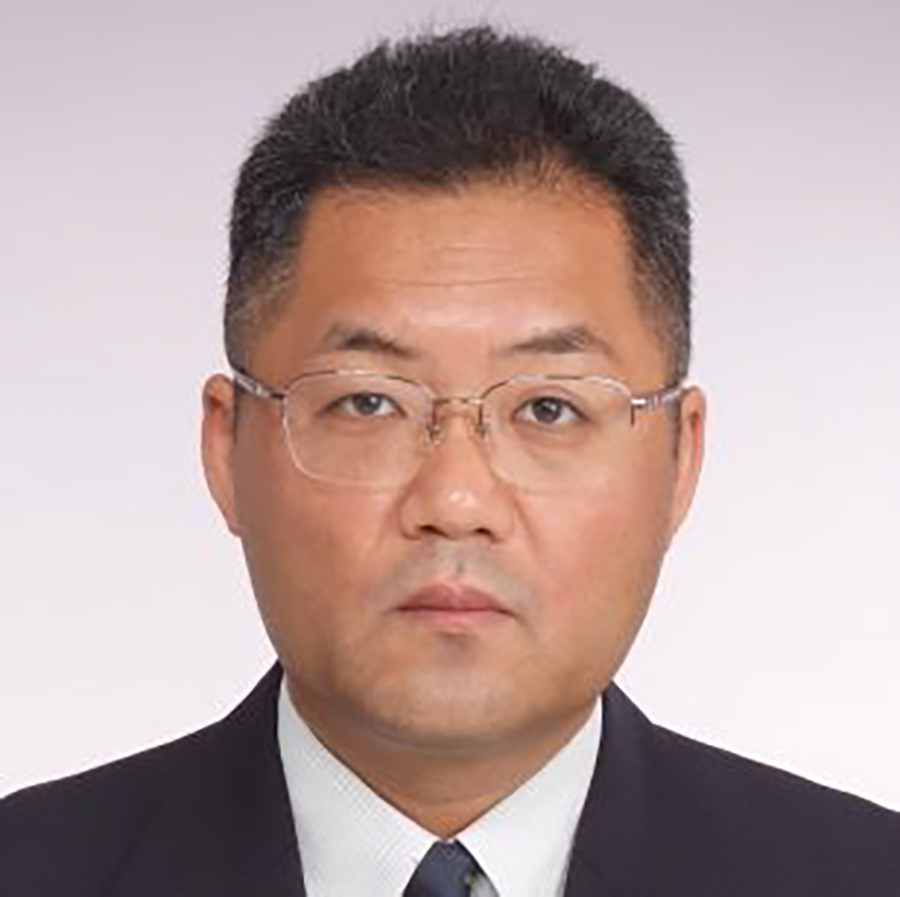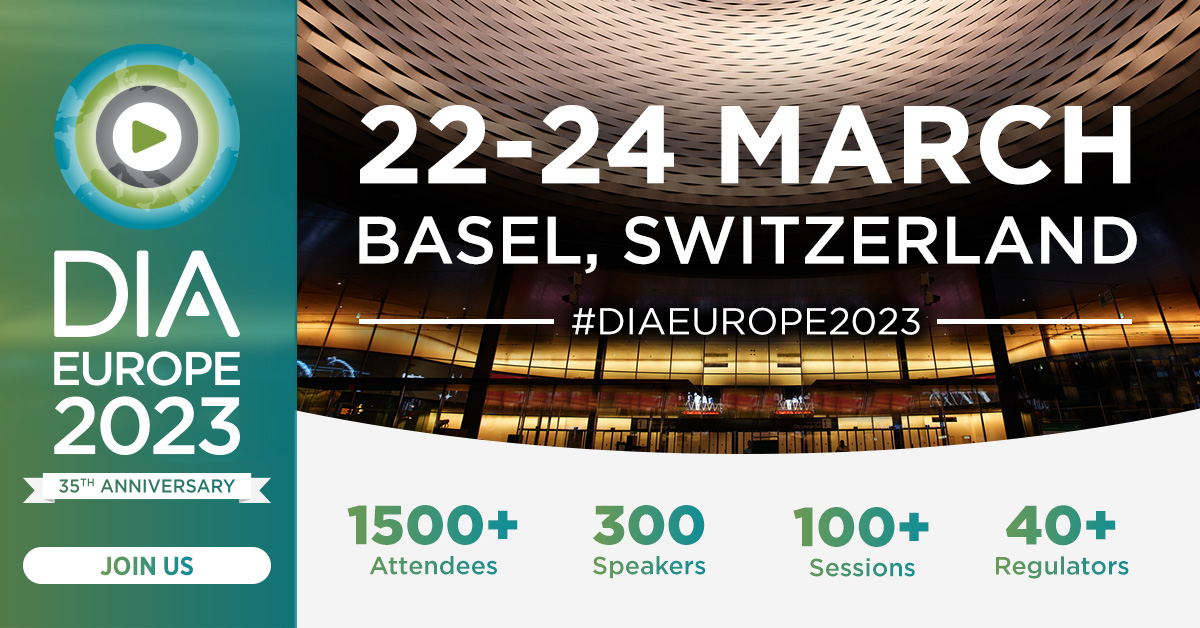Table of Contents
EXECUTIVE LEADERSHIP
Subscribe
Love Global Forum’s new online format? Subscribe today and never miss an issue.
Editorial Board
Content stream editors
Gary Kelloff US National Institutes of Health
Ilan Kirsch Adaptive Biotechnologies Corp.
regulatory science
Isaac Rodriguez-Chavez ICON plc
Patient engagement
Trishna Bharadia Patient Advocate and Media Contributor
Mary Stober Murray National Minority Quality Forum
Editorial Staff
Sandra Blumenrath, Managing Editor, Scientific Publications DIA Scientific Communications
Chris M. Slawecki, Senior Digital Copyeditor DIA Scientific Communications
Regional Editors
David Mukanga Bill and Melinda Gates Foundation
ASEAN
Jin Shun Sandoz
AUSTRALIA/NEW ZEALAND
Richard Day University of New South Wales, Medicine, St. Vincent’s Hospital
CHINA
Ling Su Shenyang Pharmaceutical University, Lilly Asia Ventures
Europe
Julie O’Brien Pfizer
INDIA
J. Vijay Venkatraman Oviya MedSafe
JAPAN
Ozawa Goshi Real Discovery Outdoors Co,. Ltd.
LATIN AMERICA
Cammilla Gomes Roche
USA
Ebony Dashiell-Aje BioMarin
Young Professionals Editor
DIA Membership
Bringing together stakeholders for the betterment of global health care.
Biotechnology Consultant
ranslational medicine and precision drug development are plagued by the irreproducibility of fundamental results published in the scientific and medical literature. That irreproducibility is often the result of neglect of the scientific method. In one published study, in 89% of cases, the authors of the original publication were unable to reproduce their preclinical results when the repeated experiments were performed in a “blinded” manner.
Upholding research integrity and improving the quality of research that underpins clinical studies is critically important. This article outlines some of the considerations that could help improve the research enterprise and illustrates the crucial role laboratory scientists play in this endeavor.
![]() Podcasts
Podcasts
“The feedback is positive. As long as you explain the clinical trial, the risk-benefit aspect of being involved in clinical trials, and then make the technology easy and simple to use, very positive feedback is our consensus at this time.”
he newest iteration of the Good Publication Practice Guidelines for Company-Sponsored Biomedical Research (GPP) appeared in September 2022 in Annals of Internal Medicine. These guidelines build on prior GPP iterations that bolstered the credibility of publications of company-sponsored research and helped establish the publications profession as a routine function within company-sponsored research.
he pandemic, the war in Ukraine, and other factors have highlighted the need to provide new modern solutions to the way we run clinical trials for the benefit of both patients and healthcare professionals. With the decrease of COVID cases and the possibility for regulators and industry to allocate time and human resources to other topics, now is the time to drive awareness and actively advance the use and acceptance of decentralized clinical trial (DCT) approaches.
@medableinc
he global virtual clinical trials market is now worth $8 billion, according to Medi-Tech Insights, and is growing at a clip of more than 10% annually. It’s not surprising: Virtual or decentralized clinical trials (DCTs) got their kickstart during the pandemic and have gone mainstream. Are the benefits they promised being realized?
ecentralization of clinical trials is a new term but not a new concept. If we consider the objective of ensuring an empathetic patient experience, optimal trials from the patient perspective may not always be characterized by fewer site visits but should certainly be characterized by a simpler site experience. This benefits both patients and sites. This broader view of trial optimization is important as we design future studies through this wider lens.
![]() Podcasts
Podcasts
Around the Globe
Takeda Pharmaceutical Company Ltd.
Pfizer (China) Research & Development Co., Ltd.
he concept of DCT is attracting more and more attention in China. The paper Expert Consensus on Decentralized and Digitalized Clinical Trials, jointly written by the DIA China Digital Health Community (DHC) and Shanghai Pharmaceutical Association, was recently published (in Chinese) in the Chinese Journal of New Drugs and Clinical Remedies. DCT stands for not only decentralized clinical trial but also digitalized clinical trial in China.
Around the Globe
Magda Chlebus
European Federation of Pharmaceutical Industries and Associations (EFPIA)
@EFPIA
Eli Lilly, on secondment to EFPIA
he European Union (EU) regulatory system has been a model of collaboration and innovation over many decades. In the current environment of rapidly advancing science, growing demands on data science expertise, and geopolitical changes, insufficient resources limit the EU regulatory system’s global competitiveness. This hinders the expertise-based decision making necessary to deliver new medicines for EU patients as effectively and efficiently as possible.
![]() Podcasts
Podcasts
“Transgender people need to be included in clinical research to decrease discrimination, to improve education, to improve treatment for every person, not just transgender people. When people know better, they’re expected to do better. And while it’s important that we do continue to have these discussions, and I want us to continue to educate each other, it’s really time at this point for action.”
Our 2022 Japan Inspire Award Winners

Nobumasa Nakashima
Pharmaceuticals and Medical Devices Agency (PMDA)

Takashi Sato
Kyowa Kirin Co., Ltd.

Aya Suzuki
Taiho Pharmaceutical Co., Ltd.









